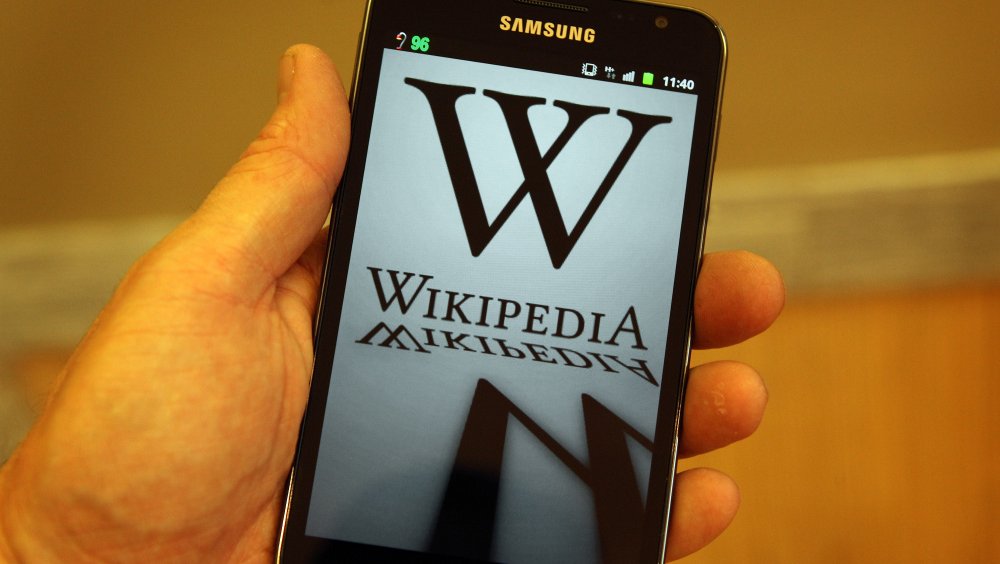Putin Bashes Wikipedia, Plans To Create Homegrown Version
Wikipedia is one of the most important inventions of the 21st century. Unfortunately, no matter how many minds it educates, the world's favorite internet resource can never catch a break. Teachers tell you not to use it as a source. Politicians dread the list of scandals that are destined to appear on their page. The Wikimedia Foundation has to beg its readers for donations every year. And now, according to Reuters, Russian President Vladimir Putin is slamming Wikipedia — and trying to replace it with a Russian version.
See, in late 2019, Putin publicly stated that he wants Russia to invest 2 billion roubles ($31 million USD) into the so-called Great Russian Encyclopaedia, a carefully monitored alternative which he refers to as more "reliable" than the crowd-sourced website the rest of the world prefers. Putin previously tangled with Wikipedia in 2015, and furthermore, this latest move by the Kremlin underscores already increasing fears of internet censorship: as the New York Times explains, 2019 saw the passing of a bill which gave control of the Russian internet to a single government agency, drawing widespread concern that Russia might be moving to adopt a tightly controlled, undemocratic, "Great Firewall of China" approach to internet freedom.
This is a serious concern, no doubt. And while Putin's complaint regarding Wikipedia's alleged "unreliability" is probably just propaganda, it's also worth nothing that it's wildly untrue.
Wikipedia is a lot more accurate than people think
Sure, you can't cite Wikipedia as a source, because it's not a professional publication. Wikipedia doesn't do interviews, hire journalists, or even break stories. What Wikipedia does do, though, is carefully collect information from real sources, to provide an accurate representation of its subjects.
Wikipedia isn't the lawless place that people think it is ... at least, not anymore. Back in the old days, Wikipedia pages were littered with messy errors, but now, every single fact needs to be carefully sourced, or a loyal slew of editors will pound it down with a big digital hammer. Seriously, you want to try vandalizing a page? According to the Independent, it'll take less than an hour for the editors to log your IP address, fix your damages, and — if you've made a habit of such nonsense — ban you from future edits. In fact, by combining its crowd-sourced, international format with a dedication to accuracy, Wikipedia has become the single biggest knowledge base in all of human history, putting even the Great Library of Alexandria to shame.
Frankly, Wikipedia takes arguments against its reliability quite seriously, and many Wiki-addicts will tell you about the famous 2005 study which found Wikipedia to be comparable in accuracy to the legendary Encyclopedia Britannica, according to CNET. There's even a whole Wikipedia page about the "Reliability of Wikipedia," and they conducted their own study in 2012. So, hey, whenever you hear any major political figure calling Wikipedia unreliable, no matter who they are, you can probably assume that said politician is the one who is actually unreliable.

